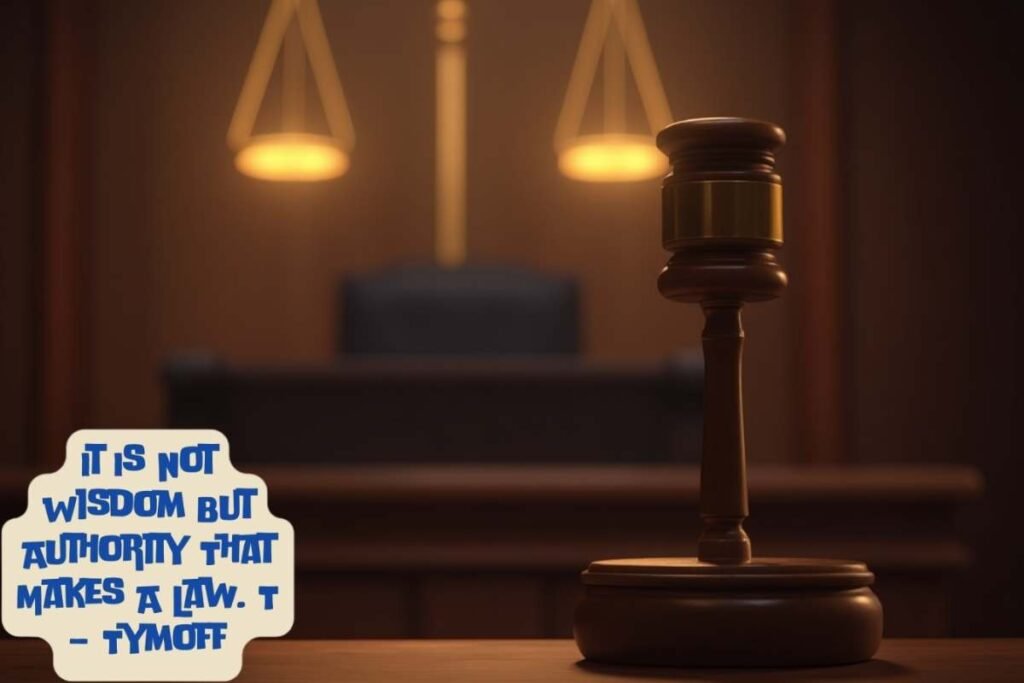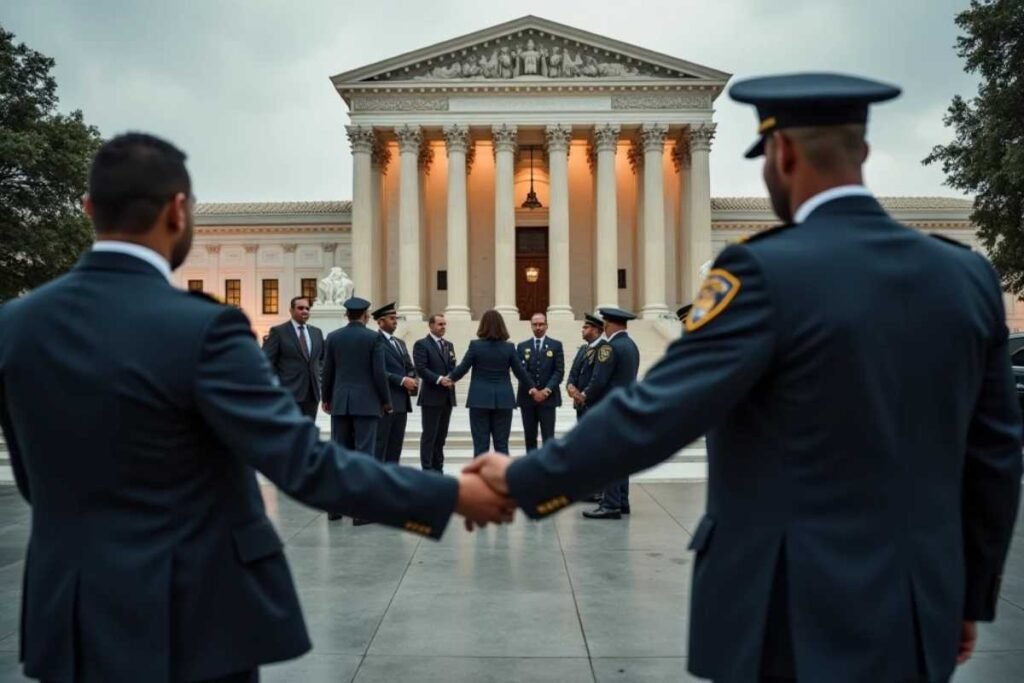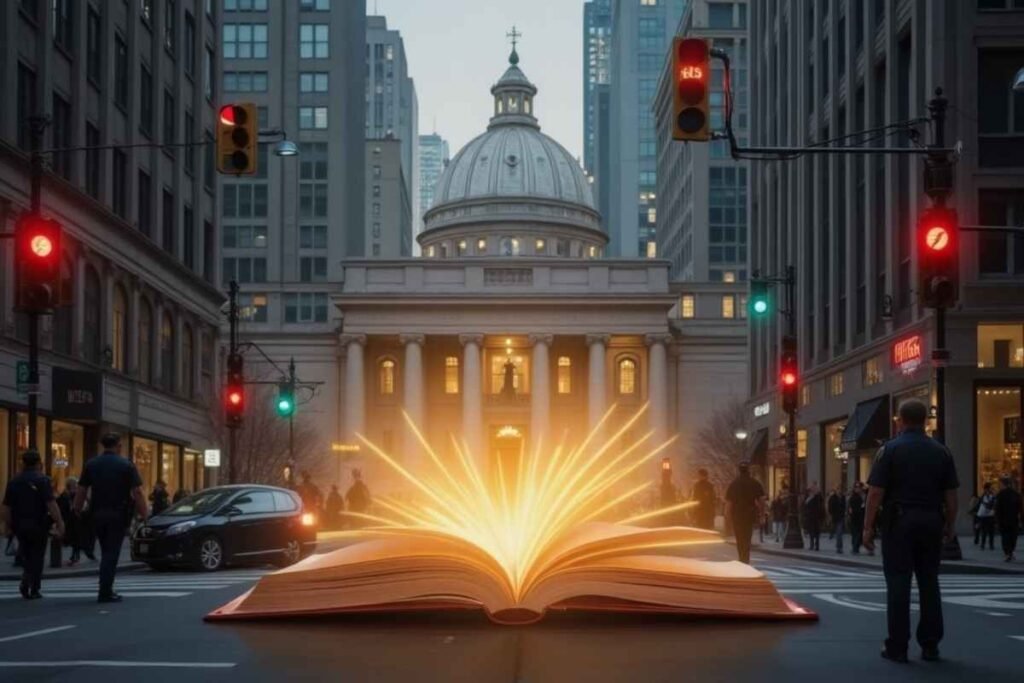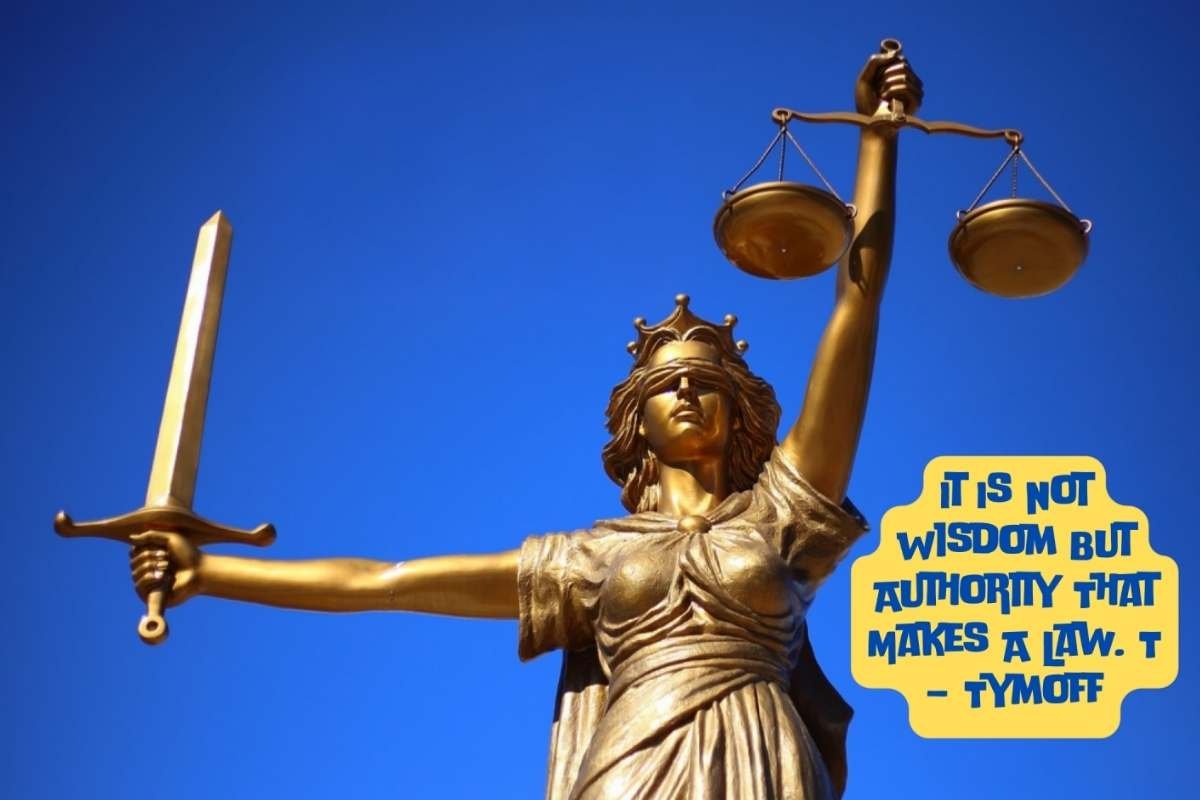The phrase It is not wisdom but authority that makes a law. t – tymoff challenges the way we often think about justice and fairness.
At first it may seem that wise ideas should naturally guide society but in reality it is power and authority that give laws their weight.
Without authority even the smartest suggestions remain powerless words. This quote pushes us to look deeper into how rules are created and why they are obeyed.
It asks us to see the difference between knowledge and control in shaping society. By exploring it closely we uncover the real foundation of law and order.
What is It is not wisdom but authority that makes a law. t – tymoff?

The quote It is not wisdom but authority that makes a law. t – tymoff means that laws are not powerful simply because they are wise or fair but because there is authority to enforce them.
Wisdom can inspire justice but without enforcement it remains only an idea. Authority is what turns words into binding rules that people must follow.
This phrase highlights the difference between knowing what is right and having the power to make it happen. It reminds us that the backbone of any law is authority not just wisdom.
The Nature of Authority!
Authority refers to the recognized power that enforces laws and ensures order. When Tymoff said It is not wisdom but authority that makes a law. t – tymoff he reminded us that rules require power behind them.
Authority is not always about fairness but it guarantees that laws are followed. This does not mean authority is superior to wisdom but it means that without authority wisdom is powerless.
In daily life we see this in governments schools and even homes where authority ensures rules are respected.
The Role of Wisdom!
Wisdom in lawmaking involves fairness ethics and foresight. Yet wisdom cannot enforce itself without authority.
Tymoff quote highlights this truth. Wisdom can inspire better societies but unless someone in power transforms those ideas into law they remain ideals.
Wisdom enriches authority by giving it direction but authority alone gives law its binding force. This balance shows why wisdom matters but cannot act alone in governing people.
Historical Roots of the Idea!
The thought that authority defines law can be traced back to political philosophy. Thinkers like Thomas Hobbes wrote about the need for strong authority to prevent chaos.
Tymoff phrase It is not wisdom but authority that makes a law. t – tymoff echoes these historical ideas. Laws throughout history were often enforced by rulers who had power not necessarily wisdom.
Monarchs emperors and legislatures shaped laws because they held authority. Wisdom may have influenced them but authority ultimately set the rules.
Authority in Governance!

Governments function because they hold authority over their citizens. Tymoff words It is not wisdom but authority that makes a law. t – tymoff are clearly seen in this structure.
Leaders pass laws and institutions enforce them. Citizens may or may not agree with their wisdom but they are bound by the authority behind them.
Authority ensures order stability and accountability. Without authority laws would collapse into suggestions. This makes authority an unavoidable foundation of governance across societies.
Wisdom as Moral Guidance!
Even though authority creates binding law wisdom provides moral guidance. The quote emphasizes authority but it does not dismiss wisdom.
Wisdom ensures laws are just humane and ethical. A society that ignores wisdom risks creating oppressive rules.
Wisdom does not enforce laws but it shapes the conscience of lawmaking. It acts as a compass to guide authority reminding leaders that power must serve justice not only control.
Authority and Social Order!
A society functions smoothly when laws are respected and this respect comes from authority. Tymoff phrase It is not wisdom but authority that makes a law. t – tymoff explains why.
People may debate whether laws are wise but they follow them because authority demands compliance. Without authority society could fall into disorder.
Authority guarantees that rules are not just suggestions but obligations. It transforms ideas into structures people must respect preserving the balance needed for stability and peace.
Wisdom in Everyday Laws!
Wisdom plays an important role in shaping the character of laws. Although It is not wisdom but authority that makes a law. t – tymoff points to power as the decisive force wisdom ensures laws serve people fairly.
Laws shaped with wisdom reflect values like justice equality and compassion. They make authority meaningful rather than harsh.
In this sense wisdom enriches laws even if authority enforces them. People accept laws more willingly when they see wisdom guiding the decisions behind them.
Ethics and Responsibility!
Authority is powerful but it carries responsibility. Tymoff phrase but It is not wisdom but authority that makes a law. t – tymoff shows the danger of authority without ethical guidance.
When authority acts without wisdom laws can harm rather than protect. True governance requires leaders to balance the power of authority with the insight of wisdom.
Authority gives law strength but wisdom gives it purpose. A responsible society ensures that both forces work together to uphold fairness and justice.
Modern Applications of the Idea!

In modern societies Tymoff statement still resonates but It is not wisdom but authority that makes a law. t – tymoff. Authority enforces everything from traffic rules to constitutional principles.
People may not always agree with every law but they comply because authority ensures consequences. At the same time wisdom continues to shape reforms and improvements.
The two forces remain inseparable but it is authority establishes order while wisdom pushes for progress. This dual role keeps societies functioning in structured yet thoughtful ways.
Conclusion
Tymoff’s quote It is not wisdom but authority that makes a law. t – tymoff but it captures the truth about how societies function.
Laws gain strength not from ideas alone but from the authority that enforces them. Yet wisdom remains essential shaping laws so they serve justice rather than power alone.
Together authority and wisdom create a framework that balances order with fairness. Understanding this relationship helps us appreciate why authority is necessary and why wisdom should always guide its use.
FAQs
Who said It is not wisdom but authority that makes a law?
The quote is attributed to T. Tymoff reflecting on law and governance.
What does the quote mean in simple terms?
It means that laws exist because of power to enforce not only because of wisdom.
Why is authority important in law?
Authority ensures that rules are followed and society avoids chaos.
Can wisdom exist without authority?
Wisdom can guide ideas but without authority it cannot enforce action.
How do wisdom and authority work together?
Authority enforces laws while wisdom ensures those laws are fair and just.




